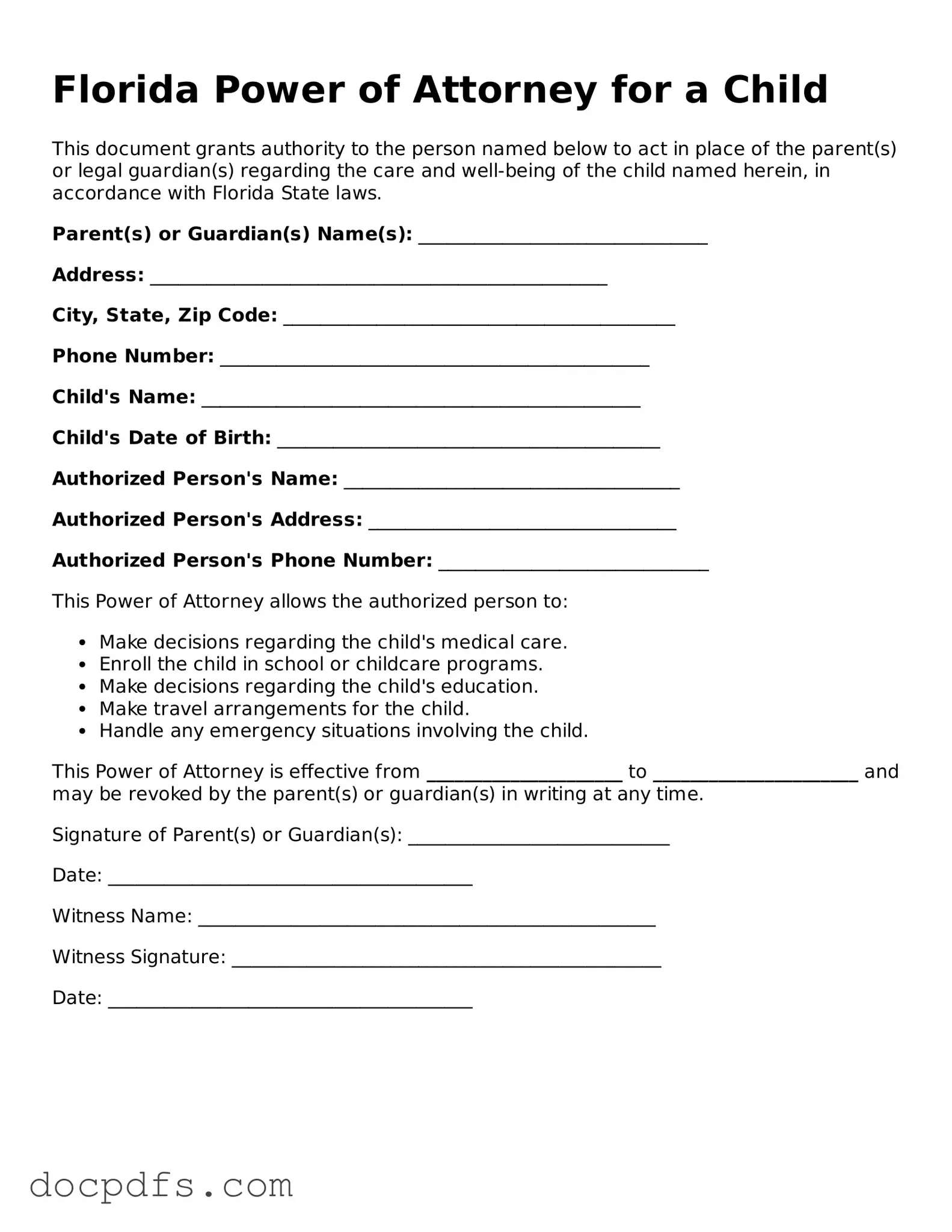Free Florida Power of Attorney for a Child Form
The Florida Power of Attorney for a Child form is a legal document that allows a parent or guardian to grant temporary authority to another adult to make decisions on behalf of their child. This form is particularly useful in situations where the parent or guardian is unable to care for the child, such as during travel or medical emergencies. Understanding the purpose and use of this form is essential for ensuring the child's well-being in the absence of their primary caregiver.
Open Power of Attorney for a Child Editor Now

Free Florida Power of Attorney for a Child Form
Open Power of Attorney for a Child Editor Now

Open Power of Attorney for a Child Editor Now
or
⇓ Power of Attorney for a Child
Finish this form the fast way
Complete Power of Attorney for a Child online with a smooth editing experience.